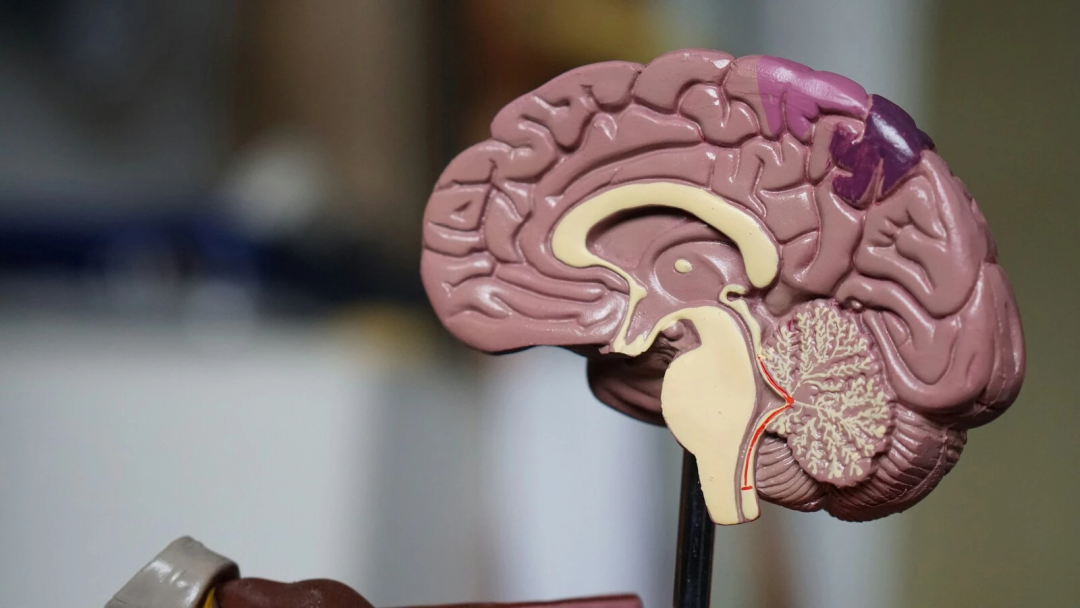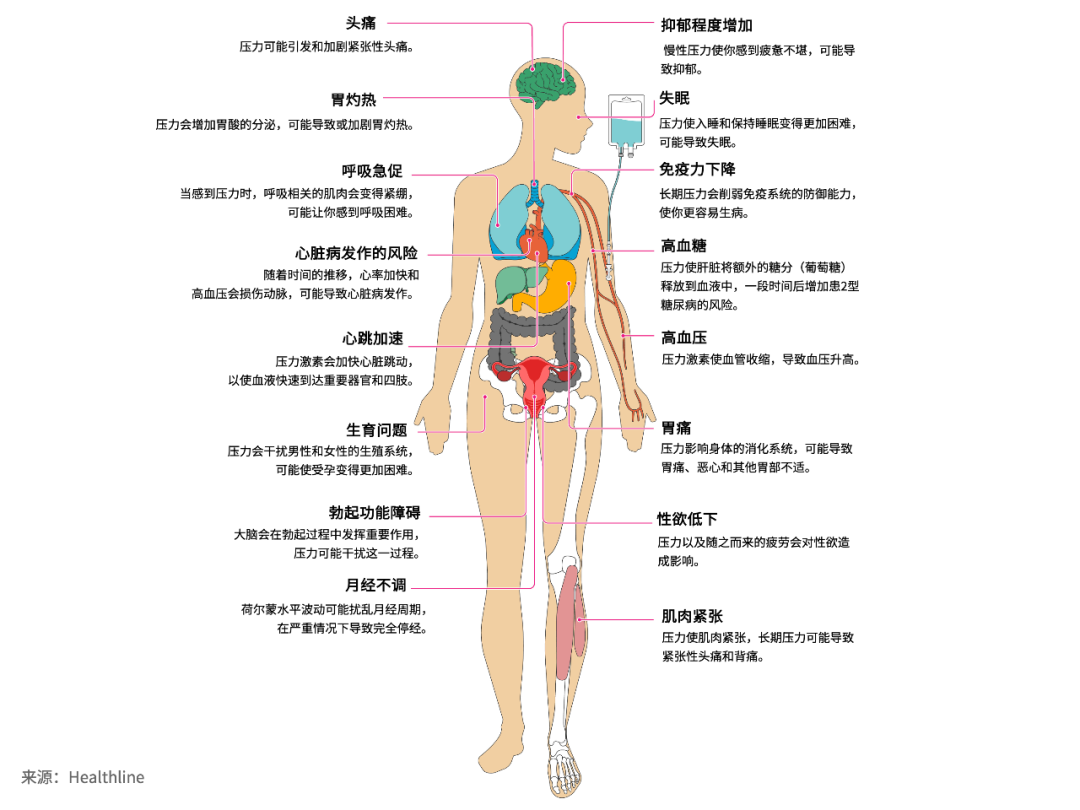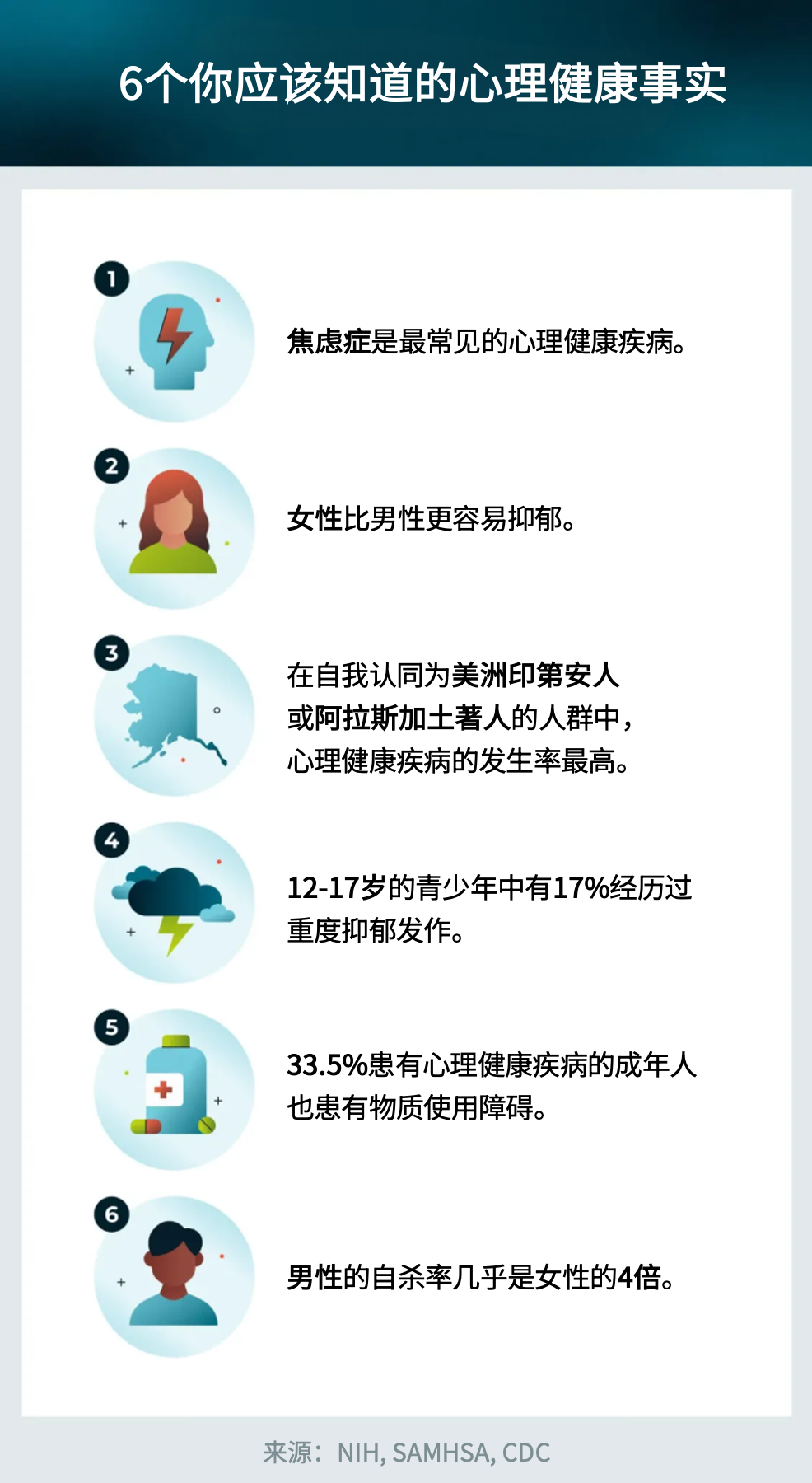Mental health is closely linked to physical health.
Image source:Unsplash/Robina Weermeijer
Michelle Meineke
Senior Writer for the Forum Agenda
Kateryna Gordichuk
Forum Agenda Writer
Mental health is a global crisis—50% of people worldwide will experience a mental illness at some point in their lives.
Dr. Ruma Bhargava, Global Health Executive at the World Economic Forum, stated that the body and mind are deeply interconnected, making it essential to prioritize both physical and mental well-being as a shared priority for improving overall health outcomes.
Protecting physical health has a direct impact on safeguarding mental health.
Have you ever felt overwhelmed and tense? Have you ever experienced anxiety, with your heart pounding fiercely in your chest? If so, you’re not alone. Among the world’s population of over 8 billion people, everyone has had similar experiences.Our thoughts and feelings are one; physical and mental health aren’t two separate concepts that can be controlled independently. Dr. Ruma Bhargava, Global Health Executive at the World Economic Forum, points out that viewing the mind and body as "isolated entities" is a fundamental mistake.The connection between the body and mind is crucial for your health—and the well-being of everyone around you. More than ever, we need to understand how the mind-body link works. A large-scale study conducted by Harvard University reveals that one in every two people will experience a mental health condition at some point in their lives.Dr. Bhargava stated: "Stress and anxiety can affect every organ in our body. When we're under excessive stress or experiencing depression or anxiety, our body reacts by, for example, raising our body temperature or losing control over our movements.""Similarly, when we develop physical illnesses such as diabetes, high blood pressure, or obesity, we also face serious mental health challenges."Excessive psychological stress often directly affects our physical sensations, movements, and bodily functions—often right away.
Image source:Healthline
Gain a better understanding of the bigger pictureThe close connection between mind and body is nothing new. Over 2,500 years ago, Greek philosophers already proclaimed: "A healthy body fosters a healthy mind." Throughout history, many medical theories have been rooted in this very understanding of the mind-body unity.Today, we’re beginning to rethink how we can understand and benefit from this ancient connection—especially as mental health issues continue to escalate.The COVID-19 pandemic has brought widespread negative impacts and heightened the risk of geopolitical decline, adding significant stress to everyday life. Meanwhile, rising temperatures driven by climate change have fueled more aggressive and anxious emotions, as well as an increase in neurodegenerative diseases like Alzheimer’s.Mental health issues can lead to widespread and potentially severe physical and social consequences.
Image source:St. Augustine University of Health Sciences
Dr. Bhargava stated: "We can think of the immune system as an army protecting us from bacterial and viral invaders. If mental health issues weaken this army, even common colds and infections could leave us vulnerable."This affects people of all age groups. A study focusing on 30-year-old men revealed that severe stress can shorten their life expectancy by 2.8 years, while for women of the same age, the reduction is 2.3 years. These findings can inspire us to reflect more deeply on how to achieve harmony between mind and body, strengthening our "inner resilience" so we can lead happier, healthier lives.The more we understand the mind-body connection, the faster we can take action. This is precisely where collaborative efforts like the Global Future Council can make a difference—by developing innovative public-private partnerships aimed at transforming the landscape of mental health care.Dr. Bhargava emphasized that the stigma surrounding mental health must be eradicated—both in and outside the workplace. Depression and anxiety disorders cost the global economy $1 trillion annually in lost productivity, making it not only a critical issue for individuals but also a business imperative to improve how we share our feelings and experiences."The workplace is the primary environment where individuals grow and mature—and it’s also the place where mental health should be prioritized for improvement," Dr. Bhargava noted. Open communication, he emphasized, should "be embedded in leadership."Currently, there are more than 1.3 billion formal employees worldwide. The World Economic Forum's Healthy Workforce Initiative aims to promote discussions about and the protection of mental and physical well-being in the workplace.How can we create more balance?Today, there are over 1 billion obese people worldwide, which negatively impacts both mental and physical health. Dr. Bhargava notes that one of the fundamental principles of mental well-being is eating well—ensuring your plate is filled with fresh, minimally processed foods that retain their "natural colors."Research shows that this practice yields remarkable results. Eating more fruit can extend life expectancy by 1.4 years, while consuming more vegetables may lead to an even longer extension."Stay away from screens" is another important piece of advice Dr. Bhargava offers for achieving life balance. A public opinion survey reveals that British adults spend nearly 5,000 hours each year using their phones, computers, and TVs. This means a typical British adult spends 34 years of their lifetime staring at screens—almost half of their expected lifespan.Spending at least 20 to 30 minutes immersing yourself in nature can significantly lower levels of cortisol, the body’s primary stress hormone. This, in turn, helps reduce risks of heart and stomach issues—as well as many other physical ailments.Experiencing nature’s diversity can provide mental health benefits lasting up to 8 hours. That means even a short daily walk could give you 56 hours of feel-good moments each week. Dr. Bhargava says, "We’re blessed with beautiful nature—so go out and enjoy it!"The final approach is to spend time with people you enjoy and care about. Close emotional connections are essential for both mental and physical health—they’re deeply embedded in our DNA. Having trusted friends and family members who can offer support, share your concerns, and simply listen can boost your mood, reduce physical stress, and ultimately break free from the "vicious cycle" Dr. Bhargava described.As the "masters" of our own minds and hearts, we can embrace the three methods mentioned above to enjoy a happier, healthier future.
The above content solely represents the author's personal views.This article is translated from the World Economic Forum's Agenda blog; the Chinese version is for reference purposes only.Feel free to share this on WeChat Moments; please leave a comment below the post if you’d like to republish.
Translated by: Di Chenjing | Edited by: Wang Can
The World Economic Forum is an independent and neutral platform dedicated to bringing together diverse perspectives to discuss critical global, regional, and industry-specific issues.
Follow us on Weibo, WeChat Video Accounts, Douyin, and Xiaohongshu!
"World Economic Forum"







